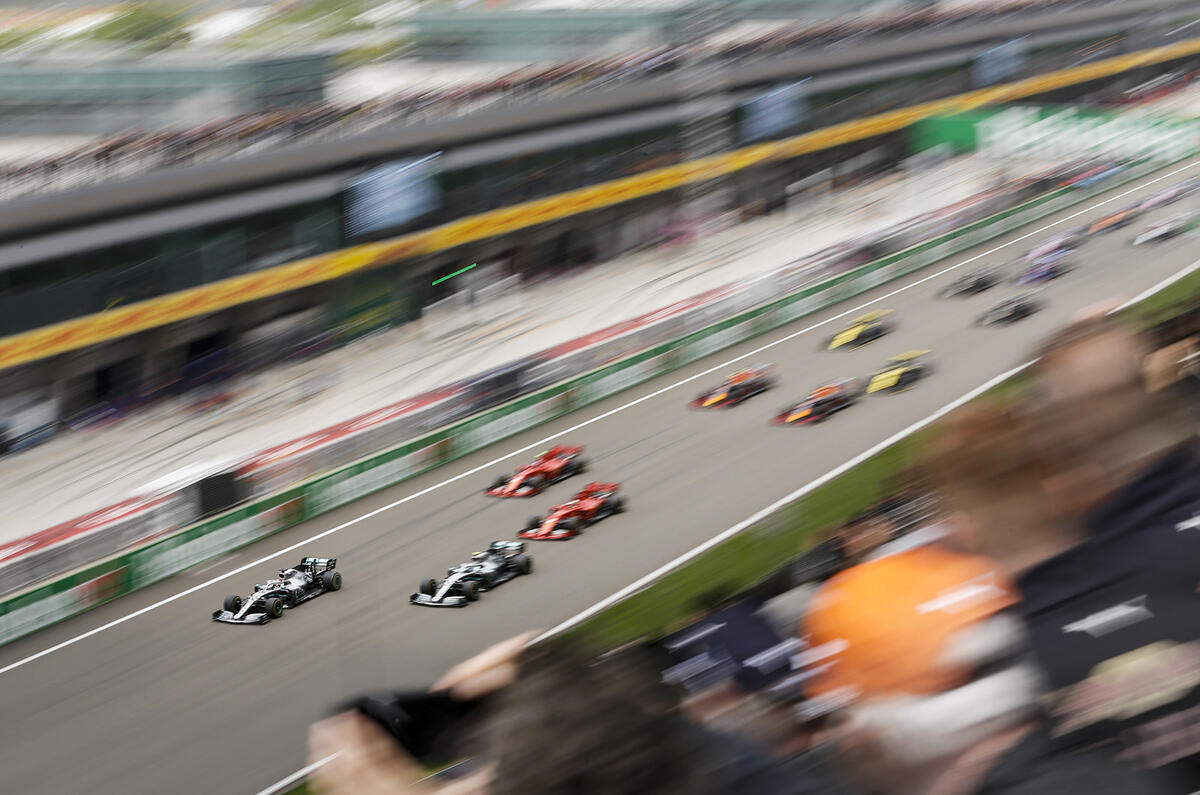‘Win on Sunday, sell on Monday’ has underpinned many a motorsport programme over the years, be it a mega-bucks manufacturer-backed Formula 1, Le Mans or world rally team or a more realistic dealer-supported national race or rally squad.
If it seems naive today to think that those six words could convince a mega-bucks industry to write cheques in support of sporting excellence, flick through pictures from the 1960s and you’ll soon get a sense that it was both persuasive and pervasive. Of course, as the world has evolved so too has the significance of the phrase. Today, motorsport budgets are typically controlled by marketers – an extension of their advertising budgets, if you like, and talked about in terms of the benefits of relationship building, positive sentiment analysis and brand awareness.
They will produce reams of analysis in support of all those things. I know, because I once read a document justifying why Infiniti was spending $30 million a year putting a sticker on cars it didn’t power. Cynical I may have been, but there was an evident logic to it compared with spending $200m as an actual manufacturer.
While Ferrari without F1 is unthinkable, you don’t have to go far down the chain to realise that motorsport soon becomes expendable. Right now, even the dominant F1 force of the decade, Mercedes, is having to justify its involvement as being cost neutral, thanks to TV, sponsor and engine supply income, not because it sells cars. I’ve no doubt that F1 provides significant exposure for the brand, and sways many a potential Audi or BMW buyer its way, but it would take a huge amount of swagger to claim that alone justifies its involvement.
There is also a deeper issue here. Burning fossil fuels is an anachronism, developing high-performance hybrids costly and launching all-electric championships too costly, complex and compromising to many of the elements of the sport that make it appeal in the first place. Formula E’s fans may disagree, but they total tens, maybe hundreds, of thousands rather than millions – certainly not enough to justify the cost long term.
Maybe there is one way out. What if the big brains and big budgets of the top-level championships stopped pandering to the latest powertrain trends and instead focused on prolonging the current ones? Today, synthetic fuel – essentially a damage-free version of petrol or diesel – is an expensive reality, but with the right focus, it could be a cost-effective secret to not only keeping today’s engines running but also tomorrow’s, all cleanly, economically and without the need for a wholesale infrastructure change. Then motorsport really would have a platform from which to shout again.
READ MORE
Inside the industry: Firms can still thrive in these tough times
EXCLUSIVE: The inside story of the Dyson EV
Hyundai luxury brand Genesis gears up for UK launch






Join the debate
Add your comment
As the motoring landscape
As the motoring landscape changes with technology - autonomous vehicles and the rush by manufacturers towards their "as a service" business models they are on their way towards becoming white goods where the relevance of motorsport will be further diminished. How many white good manufacturers do you see advertising in motorsport right now? You could argue that VW Group with its brand portfolio is the automotive equivalent of Whirlpool. The same product with subtle branding argually led by marketting
So the above points just go to supporting this article's conclusion.
Where does that leave motorsport? At a grassroots level the underlying formalae will not change - some electric series will develop as the entry price reduces. There will always be a need for some people to compete against each other and I am sure marketting departments of some corporations will be devise research to support that their involvement in the higher echelons of motorsport will be beneficial to their employers or clients.
In conclusion - motorsport is not dead - the direct involvement of manufacturers is reducing. When tobacco sponsorship was outlawed the death of formulae one was predicted yet here it is today.
Living in a developed,
Living in a developed, wealthy economy, it's easy to think that the EV revolution is imminent. But even if EVs became the only new cars available tomorrow, it would still take 10 years plus for most fossil fuel burning cars to leave the roads. They will be around for much longer than that.
Synthetic fuels have many theoretical advantages and could be a good medium term solution to reducing pollution levels. A nice side affect is that they could keep the special cars we know and live viable for longer.
Motorsport could bring profile and acceptance. I hope they take up this challenge.
Too true
Indeed it may have the opposite effect for companies that continually underperform, or whose cars blow up spectacularly in front of a global audience. And even with winning teams, buyers might wonder how much F1 adds to the cost of each car - and whether in today's climate that money might better be spent elsewhere.
But for successful companies, the real cost of F1 may be small given that the expenditure reduces overall profits and thus tax liability. Also successful teams attract considerable sponsorship and prize income, further reducing costs or maybe actually achieving a profit. And for companies like Honda, racing is seen as the ultimate training ground for its engineers allowing them to gain expertise and motivation in a wide range of fields.
It's interesting to note however that most of todays most successful and profitable companies (Toyota, VAG, PSA, Hyundai/Kia, Porsche etc) are non participants... at least at the moment.